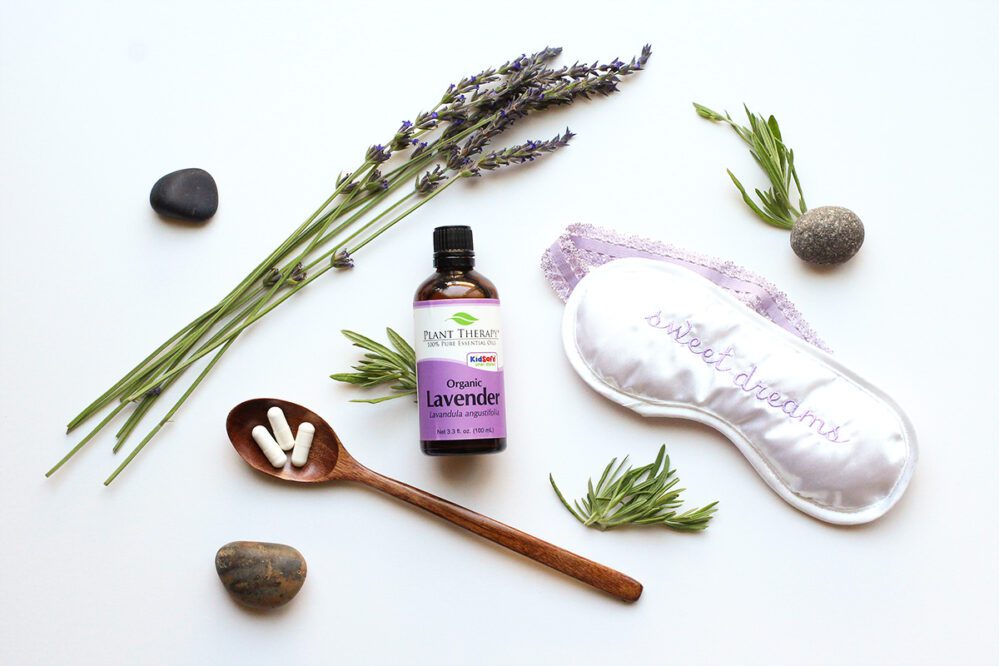
Table of Contents
Improving Your Sleep
Lack of sleep can ruin your concentration, make other enjoyable works seem boring and endless, and have a negative impact on your mood. Whether you suffer from insomnia or are simply looking for a way to decrease your number of restless nights, there are quite a few ways you can increase your chances of a good nights sleep.
Stick to a pattern
– Your body is always trying to predict what you are going to do next; it likes to be prepared. If you go to bed every night at 9.30pm, your body will come to expect this and will be ready to fall asleep at about this time. If you go to bed at random times, early or very late, your body will have no idea when to feel tired or start winding down, and you will find it incredibly difficult to persuade it to sleep. Even one day in the week with a later bedtime can throw your pattern completely.
Let your body know
– For the same reasons, you can give your body clues that it needs to start getting sleepy. Relaxing activities such as a bath, or a short period of reading in a quiet environment (read something calming and not too gripping), can start you on your way to feeling sleepy and mean you are relaxed before your head hits the pillow.
Go to bed early
– Our bodily systems do their best recovering work during sleep from 11 pm to 1 am, and toxins are eliminated with best during this period too. If you want to stick to the way nature always intended it, try going to bed around the time it gets dark – although you might have to find some reasonable compromise between the extremes of winter and summer.
Keep your bed for sleeping
– Do not read or watch TV in bed. Allow your body to predict what will happen when you get into bed, and only go to bed when you are intending to go to sleep.
Process the day before bed
– Quite often one of the hardest things to do is sleep after a hectic or worrying day. Your brain needs concluding, or to feel that things are in hand, and if you have not adequately processed a situation it is likely to keep you awake while it goes over and over things.
In order to clear your mind, try writing a list of the things you are thinking about. Write it clearly in a notepad, and if you feel you are able to you could even write an ‘action’ next to each one. That action might simply be ‘think more tomorrow’, or ‘talk to so and tomorrow’, but at the very least it ensures you have a deal with the problem as much as you can for the moment. Once all the issues are written down, you should find it easier to clear your mind, realize you can do nothing more, and sleep.
Sleep in darkness
– Darkness is a natural indicator to our body that it is time to sleep, so even a chink of light can cause a problem and inhibit the production of melatonin and serotonin. Similarly, if you have to get up in the middle of the night or use the bathroom, ensure you keep the lights as low as possible, or completely if you can.
Wake up gently
– Waking up suddenly can be disabling, and fairly traumatic to your body. There is a range of alarm clocks that aim to simulate the rising of the sun and start working sometime before you are due to wake up. They can often lead to you feeling less groggy when you do wake up, too.
Avoid caffeine and difficult foods
– Caffeine can keep you awake during the night, even if the last cup of coffee you had was during the afternoon. In the same way, foods such as dairy or wheat can cause a problem for some people’s digestive systems, and the body trying to process these foods can keep you awake. If you suspect some aspect of your diet is influencing your sleep, trying visiting a nutritionist or cutting out certain food-groups one by one to see what effect it has.
Exercise regularly
– Regular exercise (although not too close to bedtime) can help you relax before sleep. The best time to exercise in the morning, and it can help you wake up too. It does not need to be anything terribly exertive, just something that gets your heart rate up for about 15 minutes. Even a brisk walk will do. There is some research to suggest however that exercise may not be as effective in the first 30 minutes after you wake up, so do not leap straight out of bed and onto the rowing machine.
Avoid pre-bedtime snacks
– These can raise blood-sugar levels and inhibit sleep. You may find it helpful though to have a protein-based snack, and a small piece of fruit, some hours before bedtime.
Change your bed or bedding
– If you are an asthma sufferer it makes sense to look at your bedding. Anti-asthma bedding in the form of sheets and pillows can be found online or in your local retailer. Waterbeds offer a dust-free alternative to regular mattresses, are easily cleaned and maintained, and can also help with joint problems.
The bed adapts to your body shape and supports joints rather than putting pressure on them, plus the water temperature can be regulated to provide a gentle therapeutic heat. They can also help with those in convalescence, reducing the chance of pain and bed sores.
Trying to put all these measures into place at once could well be demoralizing (never mind confusing), so it’s probably best to work on one or two at a time. This also means that you may identify one or two of these changes that work especially well for you, meaning you will not need to implement the others. And as with everything that involves our bodies recovering and adapting, the most important thing is patience.






